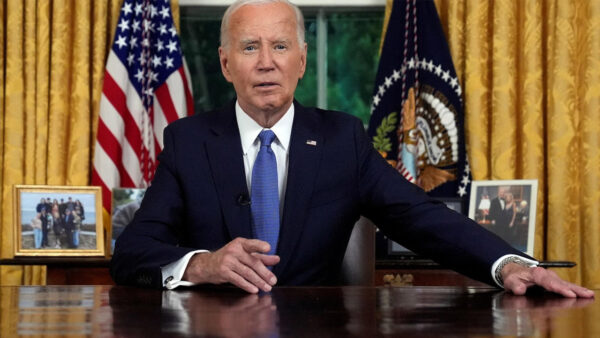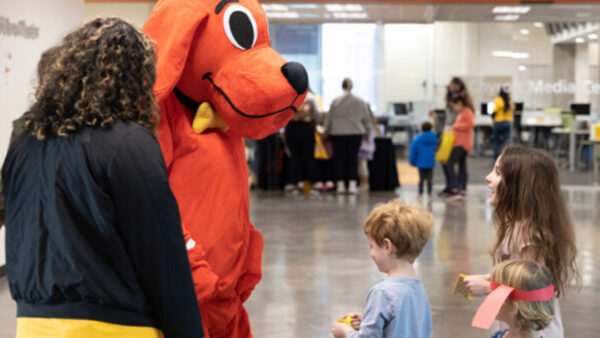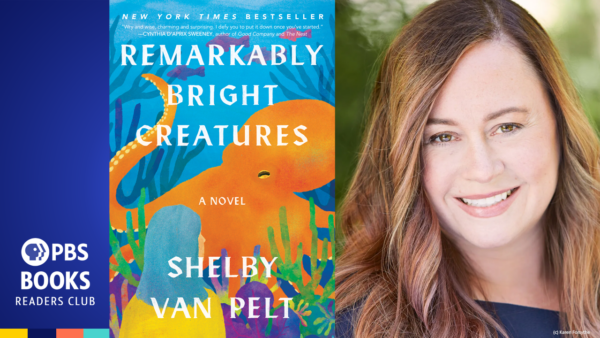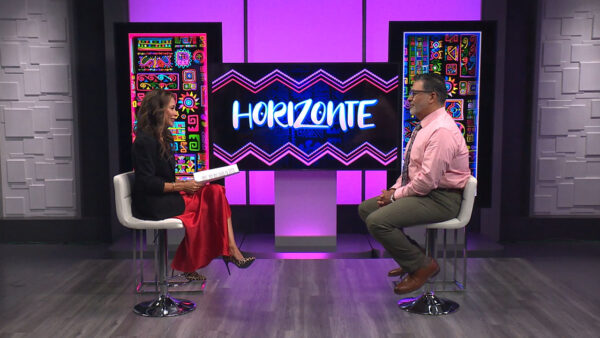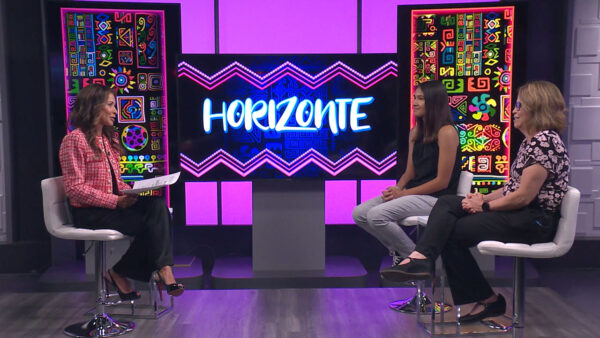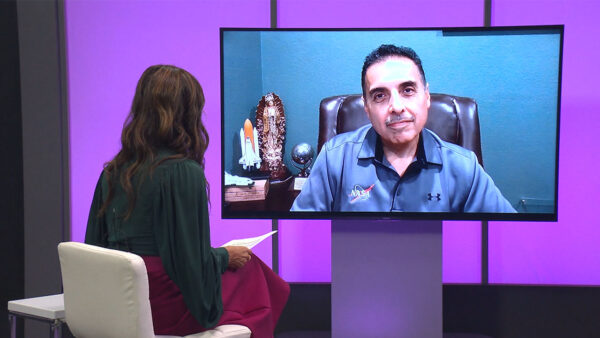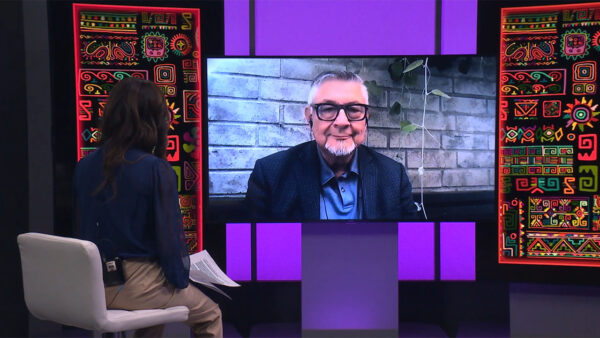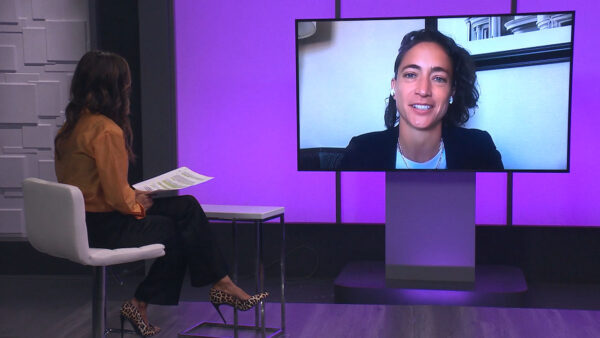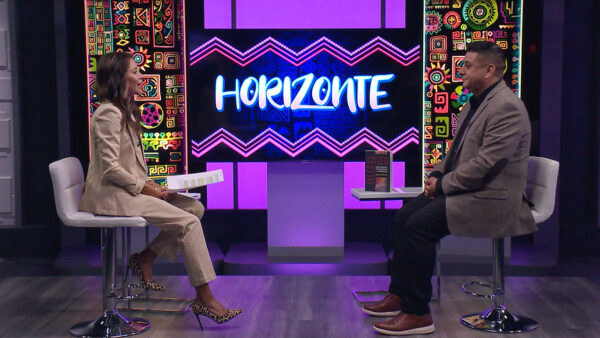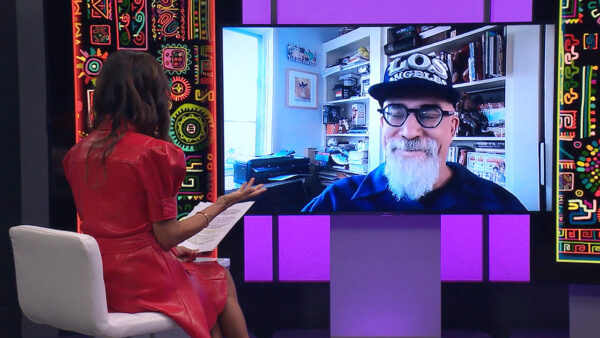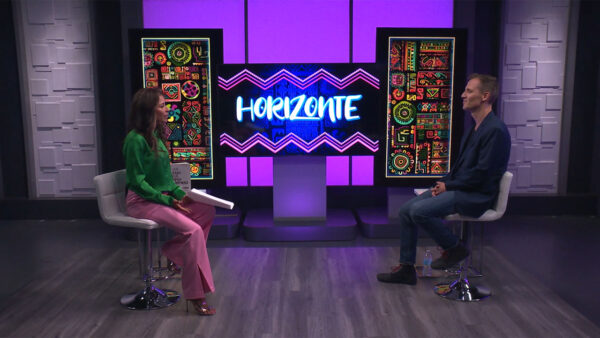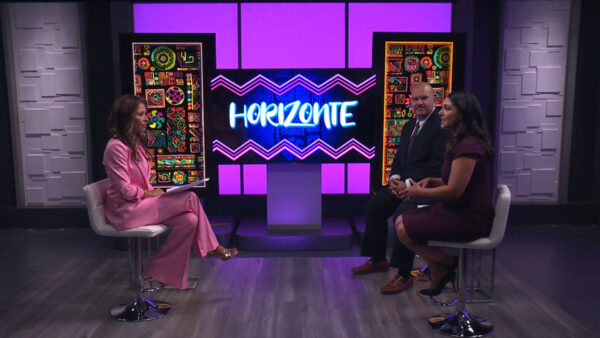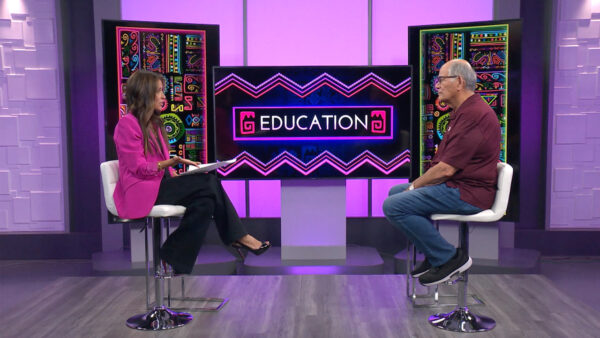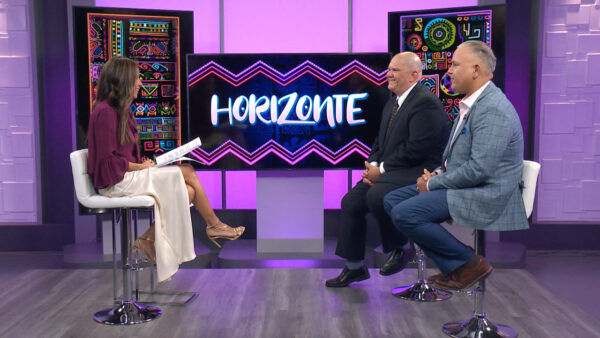The Black and Latino Coalition Project (BLCP) will soon have its first annual symposium, “Trending Race: Shaping and Embracing Black and Brown Identity”. ASU History professor Matthew Whitaker talks about the impact of the coalition and symposium.
Black Alliance for Just Immigration website
José Cárdenas: The Black and Latino collation project works to improve an ongoing dialect between black and Hispanic relations. The ASU center for the study of race and democracy will be showing a documentary examining issues between the two communities called "Trending Race: shaping and embracing black and brown identity." At the first black and Latino coalition project symposium taking place March 28th to March 30th at ASU. We will talk about the project and black and race relations in Arizona in a moment but first, here's a short clip of what the film is about.
Lady: How do you answer the question of being? How do you answer a question of existing? Who else am I? Who else can you possibly be?
Lady: We had a lot of fire, passion and things of that nature. They would say that you're a chicana and I would say, are you sure? Well, kind of. So I'm just -- what am I?
Man: That's when I started calling myself chicano. Quite frankly, it really depends on where I'm at. If I'm in a corporate setting, the term Hispanic because it's very safe and it's not a very -- it doesn't carry a lot of punch.
Man: I think someone said they're Hispanic or Latino or Mexican. I just say I'm Mexican-American.
Lady: Hispanic was the term that was made up in the '80s to put us all up in a lump together.
Man: I suppose I can just say U.S. Latino, I think that probably feels good.
Man: To talk about black identity you can't do in a vacuum and there is no one black identity. That has to be a very complicated and nuanced conversation.
José Cárdenas: With me now is Tia Oso, Arizona organizer for the Black alliance for Just Immigration. Also, here is Dr. Matthew Whittaker, a history professor at Arizona State University. Thank you, both for joining us on "Horizonte." Matthew, you've been here. We've talked about a number of issues relating to the black and Latino communities. Tell us, what's the genesis of this particular project?
Matthew Whitaker: I have long believed along with other people that there needs to be some institutional apparatus in Arizona in the university that can bring blacks and Latinos together to talk about the issues that are important to our communities and to talk about the ways in which we can collaborate to build bridges to help solve some of the problems that face us moving forward. The conference that's going to take place is our first institutional step to get that conversation going to talk about how we can learn more about our past and our present, how we can move forward.
José Cárdenas: As I understand, it's built around a documentary that you and your colleagues have prepared.
Matthew Whitaker: That's right. One of my program coordinators has produced a documentary that goes to the streets, into the classrooms, goes to the law offices, interviews folks, black and Latino descent, asks them how did you come to develop your identity? How does your identity relate and intermix with other activities within your community and black communities? And how has that shaped your life and how does that shape the issues? We've learned some wonderful things and some very interesting things about how blacks and Latinos have come to view themselves and others.
José Cárdenas: And I want to talk about how you're going to use that in the conference. Before I do that, Tia, give us a little bit of background and your involvement as it relates to the conference.
Tia Oso: Well, it was founded in Oakland, California in 2006 by a group of black clergymen in reaction to some of the national immigration reform acts that were happening and how the political rhetoric and dialogue was trying to pit African-Americans against immigrant communities saying they're taking our jobs, this is a threat to the welfare of African-Americans. And BAJI is focused on…
José Cárdenas: That's the black alliance for just immigration?
Tia Oso: Exactly. Black alliance for just immigration. So BAJI's stance is that people of color, including African Americans and immigrants from African countries, the Caribbean, we should be allied, we should be aligned. It's not immigrants that are threatening economic opportunities for African-Americans but it's U.S. economic policy, discrimination, racism that's really a threat to the health and welfare of all people of color in the United States. And we center our critical analysis, education and advocacy on engaging the black community to ally with people of color. So as far as the conference goes, we're really excited about the opportunity to have this really large-scale conversation to really examine what are the commonalities between African-Americans and Latinos, how can we come together, how can we fight for justice and for freedom together while also celebrating our identities and really seeing how we're more alike than we are different and how this is a shared fight.
José Cárdenas: Now, Professor Whitaker is talking, too, about the divisions that kind of let people say no, we need to collaborate on these issues. Some of them were pretty intense. A few years ago when people, Latinos were crusading for immigration reform, comparing themselves to the freedom riders of the '60s, there were many in the black civil rights who were offended, who thought that this did not compare in any way. Is that some of what you're dealing with here?
Matthew Whitaker: Without a doubt. We were talking about that earlier. There are some folks in the black community who are very defensive of that legacy because they view it as being that legacy but it's a lack of understanding about the multiracial nature of the civil rights movement even as it happened 50 years ago. Latinos were very active in Los Angeles and Miami and some other parts of the country early on in the movement. So even that position that well, this is -- we staked our claim. It's our fight. Even that argument isn't a historic argument. It's not our fight. As black people, it's our fight as human beings, and as people of color and it's a shared struggle. That's what we're trying to emphasize. We also want that to emphasize to be black and Latino, those are not antithetical identities. You have people of African descent that have Spanish surnames who speak Spanish whose culture consciousness and custom is Latino but they may look like me, but that doesn't mean that they're any less Latino. We want to interrogate, how do you even come to define what it means to be Hispanic and to be black? We can't solve these issues until we get at that first.
José Cárdenas: I want to talk about the documentary and how it's going to be used in the conference. But I want to make sure we also talk about some of the logistics of the conference. It's next Thursday and Friday, March the 28th and 29th and if people want more information where can they go to.
Matthew Whitaker: They can go to csrd.asu.edu our center's website. The center for the city of race and democracy. And the entire itinerary of the conference is online and the trailer that we saw earlier is there too for the documentary. We're going to screen it at every campus and we're going to have a dialogue afterwards at every campus and at sky song in Tempe, we're going to have a day's worth of events, panels and keynote addresses that respond to the film of these issues.
José Cárdenas: And that's the Friday portion of it. So was there anything in particular that stood out in the documentary, both at least in terms of the surprise as to what the issues might be that unite the black and brown communities or that divide them?
Matthew Whitaker: Among young people, there's a certain sense of pride but also confusion about, you know, who are we and how do we relate to this other large community of color? But the thing that wasn't so surprising is that they're understanding that healthcare issues, issues about criminal justice, issues about jobs and education, we have similar concerns. In Arizona, Blacks and Latinos together are about 28% of the population yet we are over half of the prison population. That is a shared issue that we both have that we could address together if we identify it and come together. That's a very clear issue there. And we have problems in our schools in terms of education that we share and healthcare issues that target our communities. We have some of the same chronic illnesses that need to be addressed over time that we need funding for and education for and these are the kinds of things that I think young people in particular are saying why can't we work together?
José Cárdenas: When you go out into the community, black and brown and talk about the need for cooperation on the issue, what kind of reaction do you get?
Tia Oso: Well the reaction, we started organizing in Arizona midsummer of last year and we started off with the form at First Institutional Baptist's Church. The pastor of the church Ron Stewart, he's recently been appointed the chair of the national immigration forum and right when the national conversation started, Pastor Steward was one of the first African American leaders to spoke out in support and called for us to be allied with the Mexican American community and undocumented immigrants and he received a lot of backlash from the black community from his congregation. There were even boos during that first sermon that he spoke out. And over the years from his leadership and the leadership of organizations like BAJI, we're starting to turn the light on in the minds of African-Americans about how this is our struggle, our fight, how a lot of these retroactive measures and punitive measures that are happening with the bills like sb 1070 and even some of the legislation that's going on at our state capitol right now trying to deny access to healthcare, deny access to education, drug testing for people who are on unemployment benefits, these are bills and measures that are actively attacking communities of color and attacking all of the advancements that were made during the civil rights movement and it's not just a Latino thing -- it's not just a brown thing. As we're educating people and people are becoming enlightened, we're finding more support and more allies.
José Cárdenas: Matthew, we only have maybe 20 seconds. Your hopes for the conference and the project?
Matthew Whitaker: From this conference, I hope that we have a sustained dialogue and some actionable items on the list of things that our communities can target, maybe five and meet with other leaders and determine what things we need to select and push for them, whether it's immigration, healthcare, something. We need to have a priority list and we need to come together to execute it.
José Cárdenas: Thank you, both for joining us on "Horizonte" to talk about this project and your efforts. That is our show for tonight. From all of us here at "Horizonte," I am José Cárdenas, have a good evening.
Matthew Witaker:ASU, History Professor;
